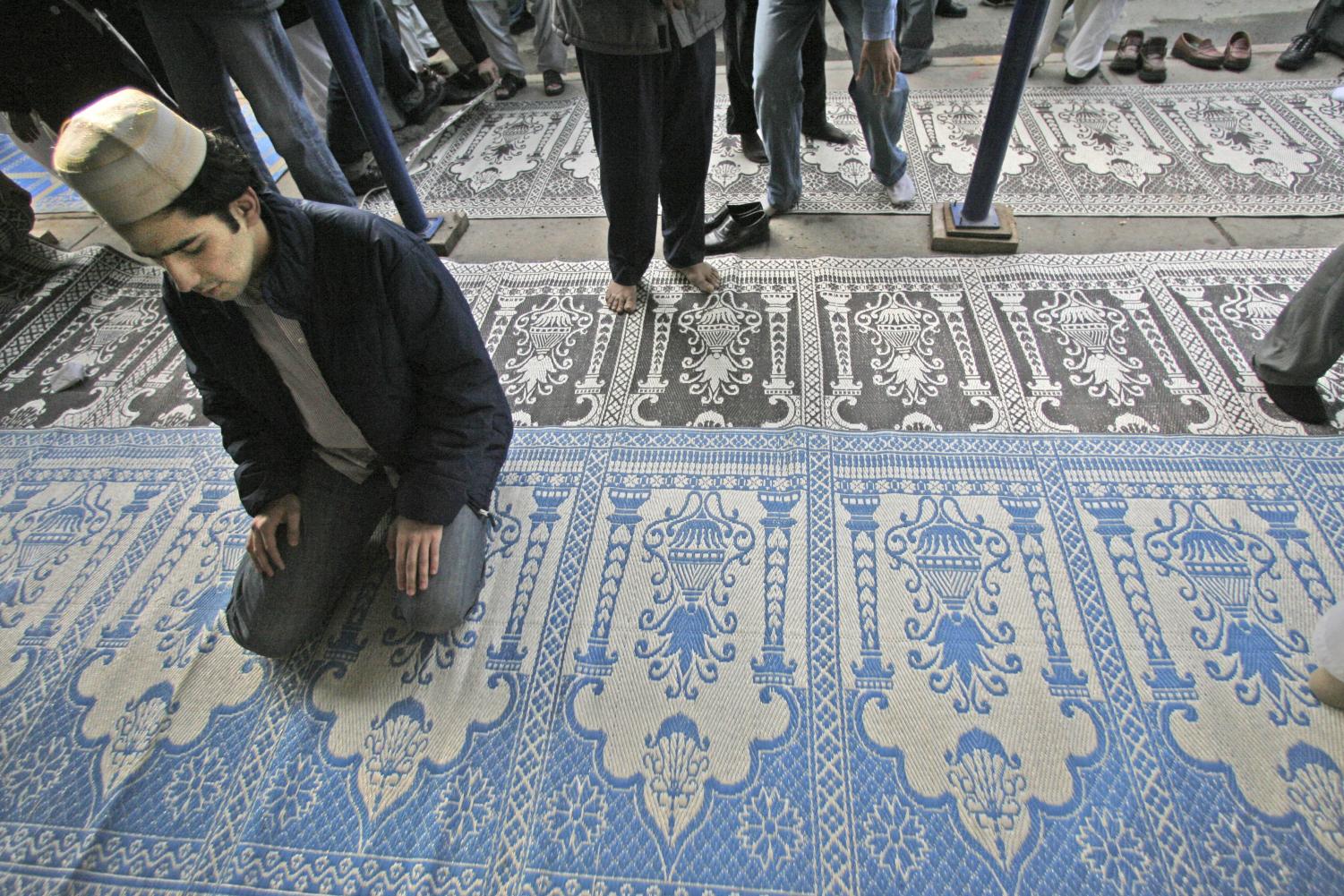GARHI KHUDA BAKHSH, Pakistan – Hundreds of thousands of mourners thronged the mausoleum of Pakistan’s most famous political dynasty on Friday in an outpouring of emotion for Benazir Bhutto. The government said al-Qaida and the Taliban were responsible for her death, claiming it intercepted an al-Qaida leader’s message of congratulation for the assassination.
But many of Bhutto’s furious supporters blamed President Pervez Musharraf’s government for the shooting and bombing attack on the former prime minister, his most powerful opponent. They rampaged through several cities in violence that left at least 23 dead less than two weeks before crucial parliamentary elections.
“We have the evidence that al-Qaida and Taliban were behind the suicide attack on Benazir Bhutto,” Interior Minister Hamid Nawaz said.
Thursday’s attack on Bhutto plunged Pakistan into turmoil and badly damaged plans to restore democracy in this nuclear-armed nation.
Interior Ministry spokesman Javed Iqbal Cheema said that on Friday, the government recorded an “intelligence intercept” in which militant leader Baitullah Mehsud “congratulated his people for carrying out this cowardly act.”
Cheema described Mehsud as an “al-Qaida leader” who was also behind the Karachi bomb blast in October against Bhutto that killed more than 140 people. He also announced the formation of two inquiries into Bhutto’s death, one to be carried out by a high court judge and another by security forces.
Bhutto was killed Thursday when a suicide attacker shot at her and then blew himself up as she left a rally in Rawalpindi. Authorities initially said she died from bullet wounds, and a surgeon who treated her said she died from the impact of shrapnel on her skull.
But Cheema said she was killed when she tried to duck back into the vehicle, and the force of the blast smashed her head into a lever on the sunroof, fracturing her skull, he said.
He said other senior politicians were also under threat of militant attack, including former Prime Minister Nawaz Sharif, who promised to boycott parliamentary elections on Jan. 8 in response to Bhutto’s assassination.
Cheema showed a videotape of the attack, with Bhutto waving, smiling and chatting with supporters from the sunroof as her car sat unmoving on the street outside the rally. Three gunshots rang out, the camera appeared to fall, and the tape ended.
U.S. officials said Bhutto’s death is unlikely to prompt any major strategy shift or cuts in billions of dollars in American aid, with some conceding that the Bush administration has little choice but to stay the course.
“There are not a lot of alternatives out there,” said one. “We have an interest in seeing Pakistan be stable and seeing that the government there has a reasonable level of legitimacy and popular support. That has not and will not change.”
The government on Thursday ordered educational institutions, commercial centers and banks closed for three days. Towns and cities were largely deserted, with traffic off the roads and most gas stations closed. Domestic and international flights have been disrupted. Telephone and Internet services were disrupted, apparently because of damage to key telecommunications infrastructure in the south of the country. Train have been suspended between Karachi and other parts of the country.
On Friday, Bhutto’s supporters ransacked banks, waged shootouts with police and burned trains and stations in a spasm of violence less than two weeks before parliamentary elections.
Soldiers patrolled the streets of the southern cities of Hyderabad and Karachi, witnesses said. At least 23 people were killed in unrest, said Ghulam Mohammed Mohtaram, home secretary for Sindh province.
Prime Minister Mohammedmian Soomro said the government had no immediate plans to postpone Jan. 8 parliamentary elections, despite the growing chaos and a top opposition leader’s decision to boycott the poll.
“Right now the elections stand where they were,” he told a news conference. “We will consult all the political parties to take any decision about it.”
Mourners traveled to Garhi Khuda Bakhsh by tractor, bus, car and jeep. Many crammed inside the mausoleum and threw petals on the coffin. Women beat their heads and chests in grief.
“As long as the moon and sun are alive, so is the name of Bhutto,” they chanted.
An Islamic cleric led mourners in prayers and Bhutto’s son, Bilawal, and her husband, Asif Ali Zardari, helped lower the coffin beside the grave of her father, Zulfiqar Ali Bhutto, also a popular former prime minister who met a violent death. Thousands of supporters then filed in to shovel dirt onto the grave.
Some mourners angrily blamed Musharraf, the former army chief, for Bhutto’s death, shouting “General, killer!” “Army, killer.”
The death of the 54-year-old Bhutto left her party without a clear successor. Her husband, who was freed in December 2004 after eight years in detention on graft charges, is one contender, although he lacks the cachet of a blood relative.
“I don’t know what will happen to the country now,” said Nazakat Soomro, 32.
A mob in Karachi looted at least three banks and set them on fire, and engaged in a shootout with police that left three officers wounded, police said.
About 7,000 people in the central city of Multan ransacked seven banks and a gas station and threw stones at police, who responded with tear gas. In the capital, Islamabad, about 100 protesters burned tires in a commercial district.
Paramilitary rangers were given the authority to use live fire against rioters in southern Pakistan, said Maj. Asad Ali, the rangers’ spokesman.
“We have orders to shoot on sight,” he said.
Earlier, mobs burned 10 railway stations and several trains across Bhutto’s Sindh province, forcing the suspension of all train service between the city of Karachi and the eastern Punjab province, said Mir Mohammed Khaskheli, a senior railroad official.
The rioters uprooted one section of the track leading to India, he said.
About 4,000 Bhutto supporters rallied in the northwestern city of Peshawar and several hundred ransacked the empty office of the main pro-Musharraf party, burning furniture and stationery.
Protesters shouted “Musharraf dog” and “Bhutto was alive yesterday, Bhutto is alive today.” Dozens of police in riot gear followed the protesters but did not intervene.
In other violence, a roadside bomb killed a local leader from the ruling party and six of his associates as they drove through Swat in northwestern Pakistan, where troops have been fighting followers of a pro-Taliban cleric in recent months, said Mohib Ullah, a local police official.
Many cities were nearly deserted as businesses closed and public transportation came to a halt at the start of three days of national mourning for Bhutto.
“The repercussions of her murder will continue to unfold for months, even years,” read a mournful editorial in the Dawn newspaper. “What is clear is that Pakistan’s political landscape will never be the same, having lost one of its finest daughters.”
Dr. Mussadiq Khan, a surgeon who treated Bhutto, said Friday that she died from shrapnel that hit her on the right side of the skull. Bhutto had no heartbeat or pulse when she arrived at the hospital and doctors failed to resuscitate her, he said.
Soomro, the prime minister, told the Cabinet on Friday that Bhutto’s husband did not allow an autopsy, according to a government statement.
After the killing, Sharif, another former premier and leader of a rival opposition party, announced his party would boycott the elections.
“I am worried about the country, about the people. Nobody is secure, there is total insecurity,” Sharif said.
Opposition politician and former cricket star Imran Khan blamed Musharraf for Bhutto’s death, saying he did not give her proper security. Speaking to reporters in Mumbai, India, where he was on a private visit, he called on the president to resign and for an independent judicial probe into her death.
Bhutto, whose party has long been popular among Pakistan’s legions of poor, served two terms as prime minister between 1988 and 1996. Both elected governments were toppled amid accusations of corruption and mismanagement, but she was respected in the West for her liberal outlook and determination to combat Islamic extremism.
By ASHRAF KHAN, Associated Press Writer. Associated Press writer Munir Ahmed in Islamabad and Matthew Lee in Washington contributed to this report.







